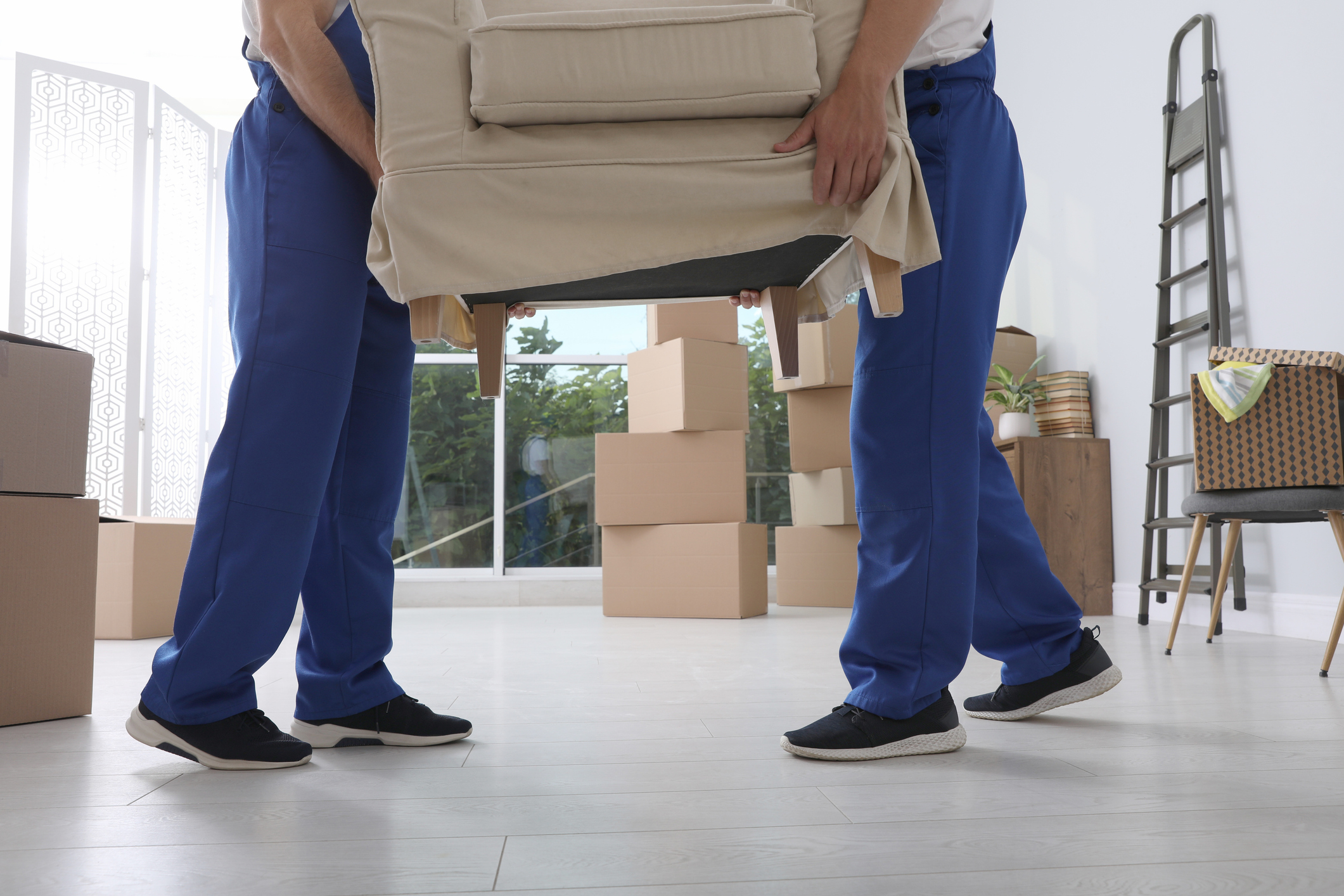Making the Right Choice for Your Move
Moving, whether it’s across town or across the country, is a monumental task. The sheer volume of things to organize, sort, pack, and transport can feel overwhelming. While many people focus on hiring a reliable moving company, the decision of who will actually pack your belongings often gets less attention. Should you tackle the packing yourself, or should you enlist the help of professional packing services?
This comprehensive guide will delve into the pros and cons of both DIY packing and professional packing services, helping you make an informed decision for your next relocation. We’ll also touch upon essential moving checklist items and offer valuable packing tips to ensure a smoother transition, especially if you’re considering a Midlothian, TX moving company.
The DIY Packing Adventure: Taking Control of Your Items
Opting to pack your own items is a popular choice for many reasons, primarily control and cost savings.
Pros of DIY Packing:
- Cost Savings: This is often the biggest motivator. By doing the packing yourself, you save on the labor costs associated with professional packers. For those on a tight budget, this can be a significant advantage.
- Personal Control and Knowledge: You know your belongings better than anyone. You can decide exactly what goes into each box, how it’s wrapped, and where fragile items are placed. This can be particularly reassuring for sentimental or valuable items. When creating your moving inventory list, you’ll have a hands-on understanding of where everything is.
- Decluttering Opportunity: Packing provides an excellent opportunity to declutter. As you go through each item, you can decide whether it truly needs to come with you or if it’s time to donate, sell, or discard. This process is far more efficient when you’re personally handling each item. This also helps with your moving list, reducing the sheer volume of things you need to transport.
- Flexible Schedule: You can pack at your own pace, fitting it into your schedule as time allows. If you have a few weeks or months before your move date, you can gradually chip away at the task without feeling rushed.
- Privacy: Some people prefer not to have strangers handling their personal belongings, especially intimate items like underwear, or private documents. DIY packing offers complete privacy.
Cons of DIY Packing:
- Time-Consuming: Packing is incredibly time-consuming. What you might think will take a weekend could easily stretch into weeks, especially for a larger home or a long-distance move like a moving across country checklist scenario. This takes away from time you could be spending on other essential tasks, like setting up utilities or researching your new neighborhood.
- Physical Demands: Lifting, bending, and repeatedly packing boxes can be physically exhausting and even lead to injury if not done carefully.
- Lack of Expertise: While you know your items, you might not know the best packing techniques for fragile items, electronics, or oddly shaped objects. This can lead to damage during transit. For instance, knowing how to pack delicate linen or valuable art properly requires specific knowledge.
- Supply Costs: While you save on labor, you still need to purchase packing supplies: boxes, tape, bubble wrap, packing paper, markers, etc. These costs can add up, and if not estimated correctly, can eat into your perceived savings.
- Disorganization Potential: Without a systematic approach, DIY packing can quickly devolve into chaos, making unpacking a nightmare. Forgetting to label boxes or mixing items from different rooms will only add stress to your new home. This can be particularly problematic for a new apartment checklist or a first apartment checklist where organization is key to settling in.

DIY Packing Tips:
If you choose the DIY route, here are some essential packing tips to make the process smoother:
- Start Early: Begin packing non-essential items weeks or even months in advance. Decorative items, books you won’t read immediately, and out-of-season clothes are good starting points.
- Declutter Ruthlessly: Before you pack a single item, go through everything. If you haven’t used it in a year, or it holds no sentimental value, consider letting it go. This reduces the number of items you need to pack and move.
- Gather Supplies: Ensure you have an abundance of sturdy boxes in various sizes, quality packing tape, bubble wrap, packing paper, scissors, and thick markers for labeling. Don’t underestimate how much tape you’ll need!
- Pack Room by Room: This keeps things organized and makes unpacking much easier. Label each box with its designated room and a general idea of its contents (e.g., “Kitchen – Pots & Pans,” “Bedroom 1 – Clothes”).
- Essentials Box: Prepare a separate “essentials box” or bag with items you’ll need immediately upon arrival. This includes toiletries, a change of clothes (underwear, socks), basic tools, medications, important documents, chargers for your laptop, and snacks. This is like packing a vacation bag or a well-prepared backpack for a trip.
- Proper Wrapping: Wrap fragile items individually. Use plenty of cushioning material in boxes. For plates, wrap them in packing paper and stand them on their sides in the box, rather than flat.
- Don’t Overload Boxes: Heavy items like books should go in smaller boxes. Lighter, bulkier items (like linen or pillows) can go in larger boxes.
- Take Photos: Before disassembling furniture or disconnecting electronics, take photos. These can be invaluable references during reassembly.
- Create an Inventory: Keep a simple moving list or inventory of what’s in each box, especially for valuable items. This also helps verify that all items arrive at your new destination.
Professional Packing Services: The Convenience Factor

Hiring professionals to pack your belongings might seem like an added expense, but for many, the benefits far outweigh the cost.
Pros of Professional Packing Services:
- Time Savings: This is the most significant advantage. Professional packers can pack an entire house in a day or two, freeing up your valuable time to focus on other aspects of your move, like researching schools, arranging utilities, or managing work.
- Expertise and Efficiency: Professional packers are highly trained in efficient and safe packing techniques. They know how to properly wrap fragile items, pack oddly shaped objects, and maximize space in boxes, minimizing the risk of damage. They’re adept at packing everything from delicate china to cumbersome furniture parts.
- Proper Equipment and Supplies: Professional movers and packers come equipped with all the necessary packing supplies, often higher quality than what you might purchase yourself. This includes specialized boxes for dishes, clothing, and electronics, as well as plenty of packing materials.
- Reduced Stress and Physical Strain: Moving is inherently stressful. Delegating the packing takes a massive burden off your shoulders, reducing physical exertion and mental anxiety. This is especially beneficial for senior moves or for those with physical limitations.
- Insurance Coverage: Many professional moving companies offer insurance coverage for items they pack. If something gets damaged during transit that was packed by their team, it’s typically covered, offering peace of mind. Always clarify the specifics of their insurance policy.
- Seamless Integration with Moving Services: If you hire a full-service moving company like Today Movers, their packing services often integrate seamlessly with their moving services, creating a streamlined and efficient relocation process. This is particularly helpful for a moving out of state checklist or moving to another state checklist.
Cons of Professional Packing Services:
- Cost: The primary drawback is the added expense. Professional packing services can add a significant amount to your overall moving cost, ranging from a few hundred to several thousand dollars depending on the size of your home and the volume of items.
- Less Control: You have less direct control over how your items are packed. While reputable companies are thorough, you won’t be personally handling each item.
- Privacy Concerns: For those uncomfortable with strangers handling their personal items, this can be a drawback. However, professional packers are trained to be respectful of privacy.
- Decluttering Challenge: If you’re not disciplined about decluttering before the packers arrive, they will pack everything. This means you might end up paying to move items you no longer need or want.
Who Needs Professional Packing Services the Most?
While anyone can benefit from professional packing, certain situations make it a particularly wise investment:
- Busy Professionals: If you have demanding work commitments and limited free time.
- Large Homes: Packing a multi-bedroom house is a monumental undertaking.
- Long-Distance Moves: A moving across country checklist or a moving to another state checklist involves more logistics, and professional packing ensures items are secure for a longer journey.
- Families with Young Children: Juggling childcare and packing is incredibly challenging.
- Seniors or Individuals with Physical Limitations: To prevent injury and reduce strain.
- Last-Minute Moves: If you have a short timeline, professionals can get the job done quickly.
- Those with Valuables/Fragile Collections: If you have extensive collections of art, antiques, or delicate items that require specialized packing.
The Hybrid Approach: A Balanced Solution
You don’t have to choose entirely one or the other. Many people opt for a hybrid approach:
- Pack Non-Essentials Yourself: Items like books, clothes (except for what you need for a suitcase), linen, and less fragile kitchen items can be packed by you over time.
- Hire Professionals for Fragile/Bulky Items: Leave the challenging items like delicate dishes, glassware, electronics (laptop, TVs), mirrors, and valuable art to the experts. They have the right materials and techniques.
- Pack Your “Go Bag” Separately: Always pack an essentials bag or suitcase for each family member. This bag should contain clothes, toiletries, medications, important documents, chargers, and anything else you’ll need for the first few days in your new home. Think of it like packing for a short vacation where airport security and easy access to items are key.
Your Essential Moving Checklist: Beyond Just Packing

Regardless of your packing choice, a comprehensive moving checklist is crucial for a smooth relocation. Here are some key categories and items to consider:
Pre-Move Planning (8 Weeks Out)
- Set a Budget: Determine how much you can afford for the entire move, including moving company costs, packing supplies, and potential professional packing services.
- Research Moving Companies: Get quotes from reputable Midlothian, TX moving company options like Today Movers. Compare services, prices, and reviews.
- Create a Moving Checklist & Timeline: Break down tasks week by week. This is your master moving list.
- Declutter & Donate/Sell: Start going through every room. This is also part of a moving house checklist or moving home checklist.
- Gather Important Documents: Create a folder for birth certificates, passports, medical records, financial statements, etc. Keep this with you.
- Research New Area (if applicable): Schools, doctors, amenities, etc.
Mid-Phase Prep (4-6 Weeks Out)
- Order Packing Supplies: If DIY packing, order boxes, tape, bubble wrap, etc.
- Start Packing Non-Essentials: Begin with seldom-used items.
- Notify Utilities: Schedule disconnects at your old home and connects at your new one (electricity, water, gas, internet, cable).
- Change of Address: Update your address with the post office, banks, subscriptions, and other important contacts.
- Transfer Prescriptions: Move prescriptions to a new pharmacy.
- Arrange Pet Care: If you have pets, plan for their transport and care.
- Plan for Valuables: Decide how you’ll transport jewelry, important documents, and other highly valuable items (personally, or through insured specialized services).
Final Weeks & Days (1-2 Weeks Out)
- Confirm with Movers: Reconfirm dates, times, and services with your Midlothian, TX moving company.
- Pack Essentials Box/Bags: Prepare a separate bag or suitcase for each family member with immediate necessities (clothes, underwear, toiletries, medications, chargers, important documents, a laptop if needed for work immediately). Think of packing for a short vacation.
- Drain Appliances: Empty and disconnect washing machines, refrigerators, etc.
- Defrost Freezer: If moving the fridge, defrost it at least 24 hours prior.
- Clean Current Home: Do a thorough clean, or arrange for professional cleaning. This is crucial for a moving out of state checklist or an office move checklist where impressions matter.
- Prepare for Payment: Have payment ready for movers.
- Set Up Mail Forwarding.
Moving Day
- Supervise Movers: Be present to answer questions and guide movers.
- Walk-Through Old Home: Do a final check of all rooms, closets, and cabinets to ensure nothing is left behind.
- Secure Important Items: Keep your essentials bag, valuable items, and important documents with you.
- Confirm Delivery Address: Provide clear instructions to your moving company.
Post-Move (First Few Days)
- Check for Damage: Inspect items for any damage incurred during transit. Report issues to your moving company promptly.
- Unpack Essentials First: Set up beds, bathroom essentials, and basic kitchen items.
- Change Locks: Consider changing locks at your new home for security.
- Explore Local Area: Find local grocery stores, pharmacies, and other necessities.
- Update Driver’s License/Vehicle Registration: Especially important for a moving to another state checklist.
Specific Checklists for Different Move Types:
- First Apartment Checklist / New Apartment Checklist: Focus on essential furniture, kitchenware, cleaning supplies, and setting up utilities for a smaller space. Things you need for an apartment often include basic tools, shower curtain, and pantry staples.
- Moving Home Checklist: Broader scope, often involves more sentimental items and potentially larger furniture.
- Office Move Checklist: Focus on minimizing downtime, labeling IT equipment carefully, and coordinating with employees. Security of sensitive documents is paramount.
- Moving Inventory List: Absolutely critical for any move, especially if you have valuable items or if you’re using professional movers for insurance purposes. Documenting each item or box helps ensure everything arrives.
Conclusion: Making the Best Decision for Your Situation
The decision between DIY packing and professional packing services ultimately comes down to your priorities, budget, and time constraints.
If you have ample time, a tight budget, and enjoy the process of sorting through your belongings, DIY packing might be the right choice. Just be sure to follow solid packing tips and utilize a thorough moving checklist to stay organized.
However, if you’re short on time, value convenience, have a large household, or possess many fragile or valuable items, investing in professional packing services can be a game-changer. The expertise, efficiency, and peace of mind they offer can make your entire relocation significantly less stressful.
No matter which path you choose, partnering with a reputable moving company like Today Movers, serving Midlothian, TX and beyond, will ensure your belongings are transported safely and efficiently. They can provide guidance on both packing and the overall moving process, helping you transition smoothly into your new home.


